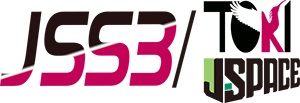Research on the performance improvement of practical aero-engine fuel injector
JAXA Supercomputer System Annual Report February 2024-January 2025
Report Number: R24EBA30200
Subject Category: Aeronautical Technology
- Responsible Representative: Takashi Yamane, Aeronautical Technology Directorate, En-Core Project team
- Contact Information: Kazuaki Matsuura, Japan Aerospace Exploration Agency, Aeronautical Technology Directorate, En-Core Project team(matsuura.kazuaki@jaxa.jp)
- Members: Kazuaki Matsuura, Jun Iino, Kinya Saito, Kunihiko Sakata, Aya Yoshida, Kodai Kato, Mitsumasa Makida, Naoki Nakamura
Abstract
Our study is focusing on the improvement of fuel injector performance. Numerical simulations on air-flow, atomization, fuel/air mixing, combustion, and thermal analysis on such injectors in realistic shapes are of our interest.
Reference URL
N/A
Reasons and benefits of using JAXA Supercomputer System
In order to analyze air-flow, atomization, fuel/air mixing, combustion, and thermal analysis of a realistic shape fuel nozzle precisely, we conduct the flamelet combustion analysis using large size of database, and the use of super computer is necessary.
Achievements of the Year
In order to avoid fuel coking in fuel circuits of a coaxially-staged lean-burn fuel injector, improvement of thermal-protection design and its numerical evaluation were carried out. After a series of design improvements, at all flight conditions considered in this research, the wet-wall temperatures of the fuel circuits were below our target (upper-limit) value except the regions close to their exits where the residence time left was short enough.

Fig.1: Schematic illustration of coaxially-staged lean-burn fuel injector with thermal management function.
Publications
- Non peer-reviewed papers
MATSUURA, K. and YAMAMOTO, T. : Development of anti-coking thermal management technologies for a coaxially-staged lean-burn fuel injector for high-pressure-ratio aero-engines. ~ First report: Evaluation of thermal protection performance and validation of numerical analysis by experiments in realistic environments. ~, JAXA-RM-24-008E (2025).
- Web
https://jaxa.repo.nii.ac.jp/records/2001693
Usage of JSS
Computational Information
- Process Parallelization Methods: MPI
- Thread Parallelization Methods: N/A
- Number of Processes: 1024
- Elapsed Time per Case: 144 Hour(s)
JSS3 Resources Used
Fraction of Usage in Total Resources*1(%): 3.79
Details
Please refer to System Configuration of JSS3 for the system configuration and major specifications of JSS3.
| System Name | CPU Resources Used(Core x Hours) | Fraction of Usage*2(%) |
|---|---|---|
| TOKI-SORA | 103172044.09 | 4.72 |
| TOKI-ST | 30797.43 | 0.03 |
| TOKI-GP | 0.00 | 0.00 |
| TOKI-XM | 0.00 | 0.00 |
| TOKI-LM | 0.00 | 0.00 |
| TOKI-TST | 0.00 | 0.00 |
| TOKI-TGP | 0.00 | 0.00 |
| TOKI-TLM | 0.00 | 0.00 |
| File System Name | Storage Assigned(GiB) | Fraction of Usage*2(%) |
|---|---|---|
| /home | 350.95 | 0.24 |
| /data and /data2 | 178176.67 | 0.85 |
| /ssd | 30720.00 | 1.65 |
| Archiver Name | Storage Used(TiB) | Fraction of Usage*2(%) |
|---|---|---|
| J-SPACE | 0.09 | 0.00 |
*1: Fraction of Usage in Total Resources: Weighted average of three resource types (Computing, File System, and Archiver).
*2: Fraction of Usage:Percentage of usage relative to each resource used in one year.
ISV Software Licenses Used
| ISV Software Licenses Used(Hours) | Fraction of Usage*2(%) | |
|---|---|---|
| ISV Software Licenses(Total) | 825.91 | 0.56 |
*2: Fraction of Usage:Percentage of usage relative to each resource used in one year.
JAXA Supercomputer System Annual Report February 2024-January 2025



